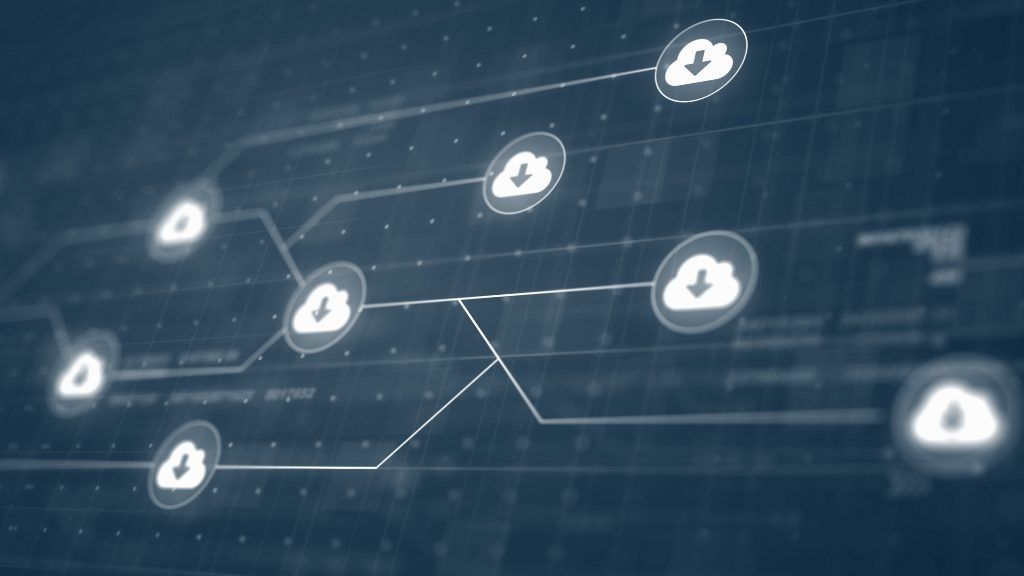Protecting a Unified Cloud Platform through Cloud Security Management
Security management platforms are designated systems that work towards providing network security to an enterprise for the storage of data that they have collected. This process involves security and compliance as well.

Most companies turn to digital data banks to store their information. Now this information can be trivial or vital.
Trivial information could refer to non-invasive information like login times and so on. But the vital information could range anywhere from phone numbers to bank statements.
Therefore, providing security to these data banks is the primary reason for hiring a security team.
In addition to this, people have also turned to VPN or Virtual Private Networking to prevent tracking of information as well as work with focus (SOC) partners, concentrating on information insurance. This forms the basis of cloud security.
Consideration for Cloud Security Management
So, what is cloud security management?
Security management involves the process of prioritizing information for protection. The principle that most cloud services follow is the 'incident' concept. This concept involves the team finding a breach in the security as quickly as possible. And once the breach is found, the team can then work towards patching it up.
The need for enhanced cloud security is high, with over 70% of companies using cloud storage having experienced a "security incident." This number rises for organizations that use multiple platforms for storage.
The considerations for cloud security management involve:
- Prioritizing the risks: This aspect specifically applies to the companies that cannot afford to put a large number of resources into cloud security only. Therefore, they will not be able to tend to each risk simultaneously. A security management team will work towards dealing with each risk in a given order.
- Implementing a cybersecurity culture: This implementation will be at the forefront of data security. It involves educating the human resources at a company about cloud security and methods to ensure security.
- Enhancing the cloud infrastructure: This process involves safeguarding the entirety of a cloud. Therefore, all the pathways present in the cloud are secure.
What Are Security Management Platforms
Security management platforms are designated systems that work towards providing network security to an enterprise for the storage of data that they have collected. This process involves security and compliance as well.
The purpose of security management platforms are:
- Simplified network visibility
The security management team makes the convoluted network of a multi-cloud system simpler. Therefore, it will be easier to detect risks. Network visibility involves visualizing the flow of traffic through a network. Therefore, it is easy to carry out the necessary cloud security measures.
- Simplified security management
This aspect promises that the documentation of information belonging to an enterprise will be lucid and easy to manage.
- Consistent policy enforcement
The platform will work towards the proper implementation of policies and cloud solutions. The policies will first receive approval from the enterprise before undergoing implementation.
- Automated security controls
The security controls are implemented automatically with the help of an** **artificial intelligence system. Therefore, this cuts out most hassles that come with cybersecurity.
Features of an Ideal Security Management Platform
1. Visibility on a single console
Console visibility refers to the ability of a platform to create a sense of transparency between an employee at an enterprise and ongoing digital operations. Some would call this type of transparency looking through a glass pane. The purpose of this feature is to help one understand the operations at a microscopic level. This further increases the ease of implementing measures for cloud security.
2. Unified threat management
Through this process, multiple risks or threats will undergo scrutiny simultaneously. Unified threat management works on the principle of employing the use of a single hardware or software to detect security breaches. This makes the process of detection and resolving issues very quick and easy to solve.
3. Real-time updates
After the aforementioned scrutiny of potential risks and threats, one should be able to receive updates regarding said problems in real-time. Therefore, one will be able to be on top of not only the business operations but also the security of the enterprise.
4. Automation support
This aspect refers to the use of artificial intelligence to detect threats and implement preventive measures. The AI can either work independently, or it can require human intervention. The functions of the AI include detecting and investigating the cloud storage of an enterprise. It would also perform functions like scheduling scans of the system as well as providing alerts.
5. Scalability of an enterprise
Security systems also work towards decreasing the workload of cloud security on an enterprise. Therefore, employing the use of this platform will mean increasing the scalability.
In addition to this, a security management platform also aims to carry out various** **types of security in cloud computing like:
- Presence of firewalls: These platforms will be able to hide sensitive information behind firewalls. These firewalls should be almost impossible to penetrate.
- Protection of static data: This data should be stored in secure data banks as it is the most vulnerable to security leaks.
- Encryption of applications: The aforementioned firewalls will need encryption in order to become almost impenetrable. This encryption can happen through passwords and secret keys.
What Makes LoginRadius a Trusted Security Management Platform
The internet houses a number of security management platforms. However, LoginRadius provides several features that work towards creating the most secure** **cloud platforms. LoginRadius provides the following cloud security features:
1. Handling consumer data
The LoginRadius Directory for Cloud Storage is essential in creating a directory to assist a security team. This directory is exclusive to managing consumer data. The features of this cloud directory include:
- Prebuilt model: The framework of this directory comes ready-made. Therefore, there is no need to invest in an experienced engineering team to build one from scratch.
- Reduced costs: An enterprise will not have to shell out money to carry out research into a better cloud security system.
- Automated system: All updates to the system as well as functioning is automated.
- Compliance to privacy: The directory follows the regulations as stated in the GDPR, CCPA, and other international laws.
- Gathering data: The directory will employ the use of open APIs to gather data from third-party resources.
- Ownership: The enterprise that uses the platform will receive full ownership of the customer data. Therefore, they can keep firm control over the operations of the business.
2. Efficiency
An enterprise will be able to access a multi-tenant cloud. This system involves the following features that are geared towards increasing the efficiency and scalability of cybersecurity.
- Client databases: The information of different clients will undergo separation into different clouds to prevent confusion.
- Logging and audit trails: Information regarding the operations of the enterprise is also tracked separately so as to increase security.
- No evidence: Through LoginRadius' management system, one will receive the assistance of an admin console. But no third party will be able to find out about LoginRadius Identity Platform.
- Separation of API calls: The platform can distinguish between the requests coming either from the Identity API or the Cloud Directory API. After this distinction, it further directs the requests to the respective API.
3. Adaptation
Through the LoginRadius Identity Platform, one will be able to receive growth-specific assistance. LoginRadius provides a list of security management standards in cloud computing according to the size of the enterprise. They are:
- User accommodation: The platform will be able to change in accordance with the size of the consumer base. The proper accommodation of a customer base is crucial for cloud security.
- Increase in storage: Accommodations will also be made for the increased information that will undergo collection.
- Handling of applications: The new applications that are created will also be logged and managed through the platform.
- Peak load management: The login times and account activity demands will also be met with the help of the identity platform automatically.
4. Cloud Security
LoginRadius provides top-notch cybersecurity through its openID connect system. This cloud security system is also known as the OAuth 2.0 protocol and is also used by, for example, Google and Amazon for their data security. The** **security and compliance measures are legal and adhere to government regulations.
Conclusion
With most business operations going online in recent years, cloud security has started to receive more importance. This is because cloud storage can get easily convoluted and complicated as the number of information increases. This makes it easy for information to be leaked. A unified cloud platform provides its services to protect information while moving to the cloud.
Originally published at LoginRadius



